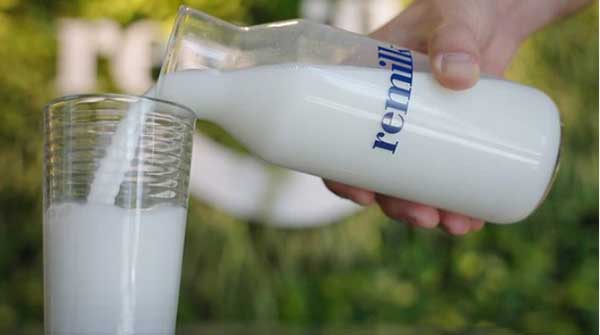‘Lab-grown’ animal-free dairy protein receives approval, paving the way for sustainable alternatives in the dairy industry
 The term “lab-grown” often has a negative connotation for most consumers, and it’s not hard to understand why. However, the landscape is changing.
The term “lab-grown” often has a negative connotation for most consumers, and it’s not hard to understand why. However, the landscape is changing.
Canada has reached a historic moment in the dairy industry, thanks to Health Canada’s recent approval of Remilk’s “lab-grown” animal-free BLG protein. This approval represents a significant shift in protein production, with Remilk becoming the first company to gain regulatory approval for its animal-free dairy protein in Canada.
While this groundbreaking decision highlights the evolution of food science, it also presents new opportunities and challenges for Canada, some of which may not be met with enthusiasm.
 Photo supplied by Remilk |
| Related Stories |
| Don’t be so quick to dismiss lab-grown meat
|
| Lab-grown coffee – agriculture’s rising revolution
|
| Lab-grown meat is worthless unless consumers see a benefit
|
To better grasp this technology, let’s explain what precision fermentation, the technology approved by Ottawa, is. The key difference between regular dairy products and Remilk’s technology lies in precision fermentation’s use of biotechnology to manipulate microbes to produce substances, such as proteins, that are virtually indistinguishable from those found in traditional dairy.
Fermentation not only alters the taste and texture of food but also enhances its qualities, including digestibility. For example, individuals with lactose intolerance often tolerate yogurt and kefir better than conventional dairy products because fermentation aids in breaking down lactose. Millions of Canadians who are lactose intolerant are always looking for more affordable options.
The process may not sound particularly appealing, but it essentially involves working with microbes to generate proteins. It isn’t about creating ultra-processed foods; instead, it’s about catering to consumer preferences while working with nature, but at a different level.
It introduces a new technology that provides an ingredient for manufacturers seeking dietary and nutritional solutions they often struggle to find with conventional dairy-based proteins. Importantly, consumers won’t be able to discern any difference in taste and texture compared to traditional milk, ice cream, yogurt, and cream cheese, all while benefiting from lactose-free, cholesterol-free, and hormone-free options that offer significant nutritional and environmental advantages.
This development is poised to disrupt the dairy industry in multiple ways as consumers increasingly seek sustainable alternatives that don’t compromise on taste or texture, with animal welfare considerations also playing a significant role.
Consumers may not directly purchase Remilk products in stores but can expect to encounter these proteins in various food products they regularly buy, without them being explicitly labelled as such. This trend isn’t entirely new, as the rising cost of milk and dairy proteins in Canada has already led manufacturers to substitute real dairy with alternative ingredients. Remilk now offers a different, more flexible option with numerous benefits, both nutritionally and environmentally.
While Health Canada has given its approval, Agriculture and Agri-Food Canada might hold differing views. Supply management is a cherished concept in the Canadian dairy industry, with a highly protected market worth over $24 billion in quotas, supporting approximately 9,000 farmers. This system is unlikely to change anytime soon, as any potential threats or challenges to supply management are typically addressed swiftly.
However, concerns among consumers about moving away from dairy are growing. These concerns encompass environmental issues, product quality, animal welfare, and pricing. As some Canadians notice declining quality in certain dairy products, particularly butter, they face increased prices. At some point, adjustments may become necessary.
The implications of this milestone are profound. It underscores the shifting landscape of food production and the rising demand for sustainable, dairy alternatives.
Health Canada’s decision is indeed positive news for consumers and food science, but it poses challenges for the traditional dairy sector. Supply management is, well, focused on precisely that – supply management. Dairy boards prioritize ensuring dairy farmers receive compensation for their work over concerns about declining product demand in Canada, and that’s perfectly acceptable.
Nevertheless, it’s worth considering that, over time, this approach could significantly reduce the number of dairy farmers, which may not be a wise strategy.
Dr. Sylvain Charlebois is senior director of the agri-food analytics lab and a professor in food distribution and policy at Dalhousie University.
For interview requests, click here.
The opinions expressed by our columnists and contributors are theirs alone and do not inherently or expressly reflect the views of our publication.
© Troy Media
Troy Media is an editorial content provider to media outlets and its own hosted community news outlets across Canada.

